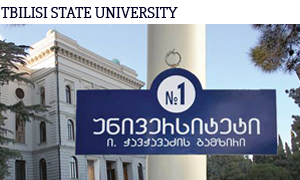
Journal Number: 5
Historian and orientalist, Professor Gocha Japaridze, became interested in the fate of Georgian Mamluks in the 1960s during his years as a student, when he came across some letters in Georgian they had sent home. As a scholar he began studying this issue in 1998, when he was an envoy of the Georgian Embassy to Egypt. His many years of service in Egypt enabled him to have access to extensive materials. Unlike previous scholars studying the history of Georgian Mamluks, Prof. Japaridze incorporated more information from Arabic and European sources, as well as Cairo’s epigraphic monuments into his research.
In Georgia’s southwestern region of Samtskhe-Javakheti, there is a high percentage of ethnic minorities. Issues such as the forcible deportation of Meskhetians remain a ‘dark example’ in the history of Soviet Georgia. The country still carries an important moral responsibility to make reparation to these people for the way they were treated by the Soviet Government of Georgia. This is why the new book by Dr. Roland Topchishvili, The Ethnic History of Samtskhe-Javakheti (2013) has evoked great interest within Georgian scientific circles as it treats the complex ethnic history of Samtskhe-Javakheti, including the impact of Moslem and Turkish culture on Georgian people of the region.
According to the Global Competitiveness Index, out of 148 countries, Georgia has a very low rating for education. In the category of universal access to primary education (admissions), Georgia holds 32nd place while quality wise, primary education is only in the 94th place (3,4 points). According to the quality of the education system in general, Georgia is in 105th place (3.2 points), with the quality of mathematical and scientific education in 106th place (3.4 points) (Global Competitiveness Report 2013–2014, World Economic forum).
Research on emotional intelligence has intensified over the last decades, and according to common definitions it is seen as the ability to recognize, understand, express, manage and regulate emotions (J. D. Mayer & P. Salovey, 1997). Emotional intelligence helps to determine whether a person becomes a leader, controls their own and other’s emotions or achieves success. In Georgia research on this topic is relatively new, and has been undertaken by Assistant Professor Dr. Khatuna Martskvishvili, who is studying how emotional intelligence relates to mental disorders, in order to establish possible new trends for rehabilitation.







